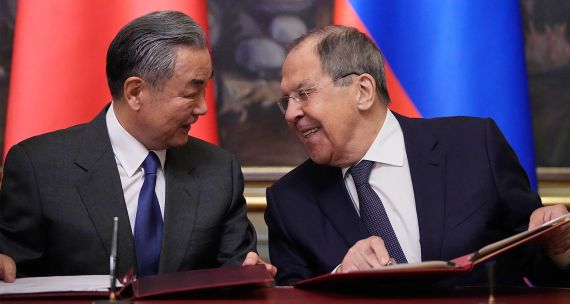The current campaign by the PRC Ministry of State Security calling on people in China to beware of foreign spies should give pause to Canadians hoping for closer economic and social ties with Beijing. The propaganda campaign is yet a further step in a disturbing pattern of closing China off to the outside world. This poses a significant challenge to Canada's efforts to build a partnership with China.
Questions about how far to open China to the world have been endemic to China's process of modernization. In the late 19th century, the famous ti-yong debates centred around how to protect China's cultural essence even while utilizing foreign technologies. Under Chairman Mao Zedong, the PRC after 1949 remained more or less closed to the West. Beginning in 1978, Deng Xiaoping rejected isolationism and oversaw a program of "reform and opening up" that welcomed foreign business, as well as fostering academic and cultural exchanges. Responding to those who worried about allegedly harmful influences from abroad, Deng famously retorted that when the windows are opened it is only natural that a few flies will come in.
The reform and opening-up policy continued and expanded despite the setback of Tiananmen in 1989. China's entry to the World Trade Organization in 2001 heralded still broader engagement with the world. Over the past more than fifteen years, China has welcomed multitudes of foreign business people, educators, students, and cultural and social organizations, while also participating more fully in global governance involving development, peacekeeping, and climate change, and permitting Chinese citizens to travel abroad more freely.
Official reservations about foreign activities in China did not fade away completely, as restrictions were imposed in such areas as academic research, NGO co-operation, and business due diligence. However, these efforts have intensified greatly under the leadership of Xi Jinping. The well-known Document No. 9 of 2013 identified "noteworthy problems in the ideological sphere" blamed largely on Western influence, including: (a) ideals of constitutional governance and judicial independence; (b) universal values such as democracy, freedom and human rights; (c) support for civil society; (d) the importance of the market economy; and, (e) journalistic freedoms. Public discussion on these and other topics is mostly prohibited.
This trend has continued with restrictions on Internet access and intensified surveillance and harassment of Chinese lawyers, academics, journalists, and NGO staff deemed too receptive to foreign ideas. China has extended these efforts internationally in an effort to intimidate Chinese students and professionals studying and working abroad.
Most recently, the Ministry of State Security posted a caution on its website directing people to beware of red-headed academics, tourists, English teachers, and NGO workers. While the notice has caused revulsion over its stereotyped caricatures of Westerners and posed a personal affront to red-headed academics like myself, more importantly the MSS notice reveals a troubling commitment by the PRC to further restricting knowledge and understanding about China. After nearly 40 years of reform and opening up, the PRC regime seems to want to close itself off from the international community yet again. Ironically, at a time when the "hermit kingdom" of North Korea seems ready to open up to foreign engagement, China seems to be going the other direction.
Aside from the implications for educational and cultural exchanges, restrictions on foreigners seeking information about China are bad for business – firms cannot compete and succeed in markets they do not understand. As a prominent Chinese economist once said, "a market economy is an information economy." Intensifying restrictions against access to information contradicts this basic principle. Notwithstanding Xi Jinping's recent speeches at Davos and Bao'an on trade and investment liberalization, the PRC's efforts to restrict information access compel foreign businesses and others to rely solely on official news – hardly a sustainable foundation for genuine understanding and commercial success.
Before Canada goes farther down the road to a free trade agreement and other measures aimed at building closer economic ties, we should think seriously about how open China actually is or wants to be. Whether in the area of educational and cultural exchange, NGO co-operation, or on the business front, Canada should seek assurances that greater access to information in China will be preserved and protected. Otherwise, a balanced and mutually beneficial relationship between our two countries will not be achieved.
This piece first appeared in iPolitics on May 26, 2018.



